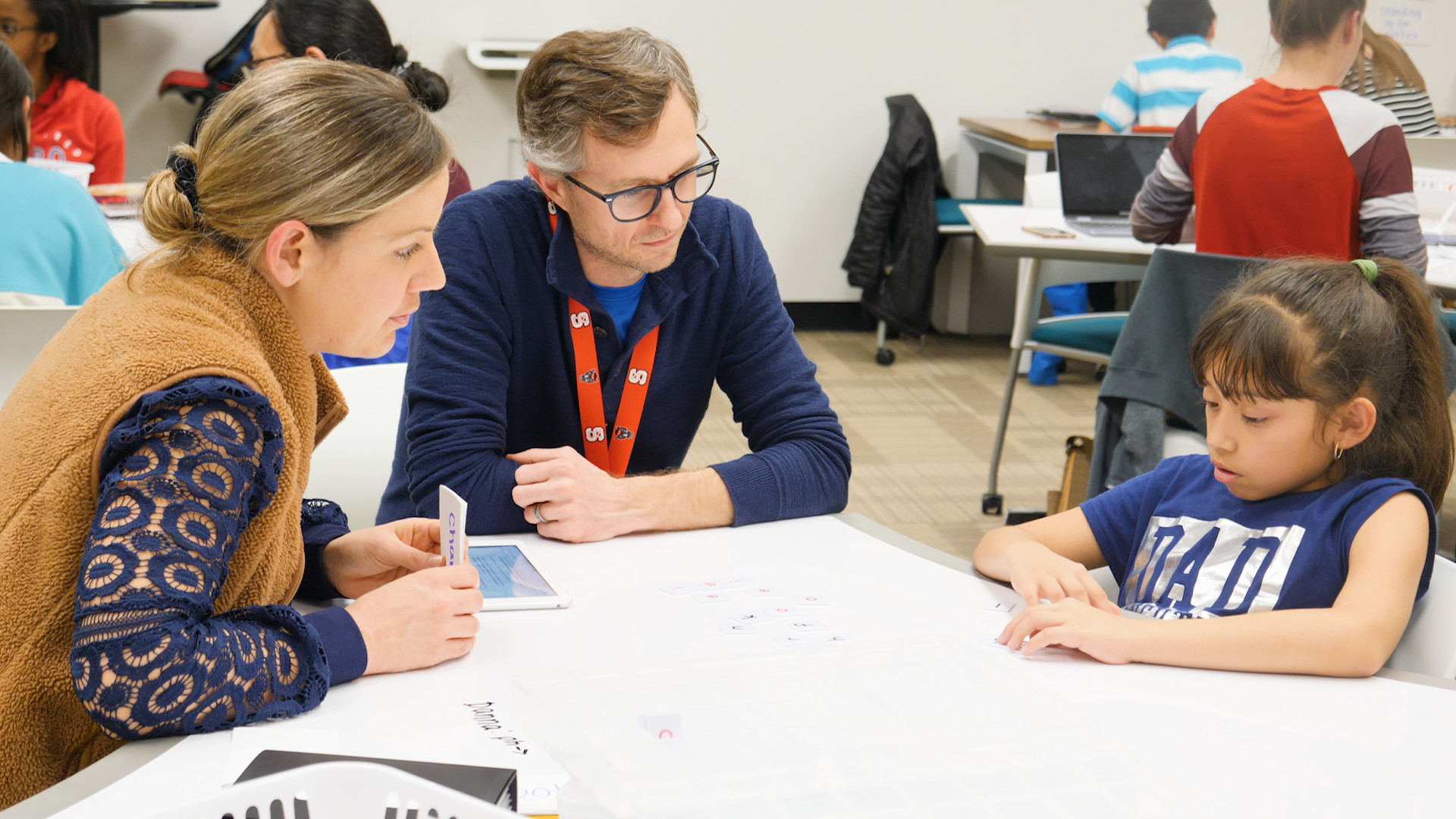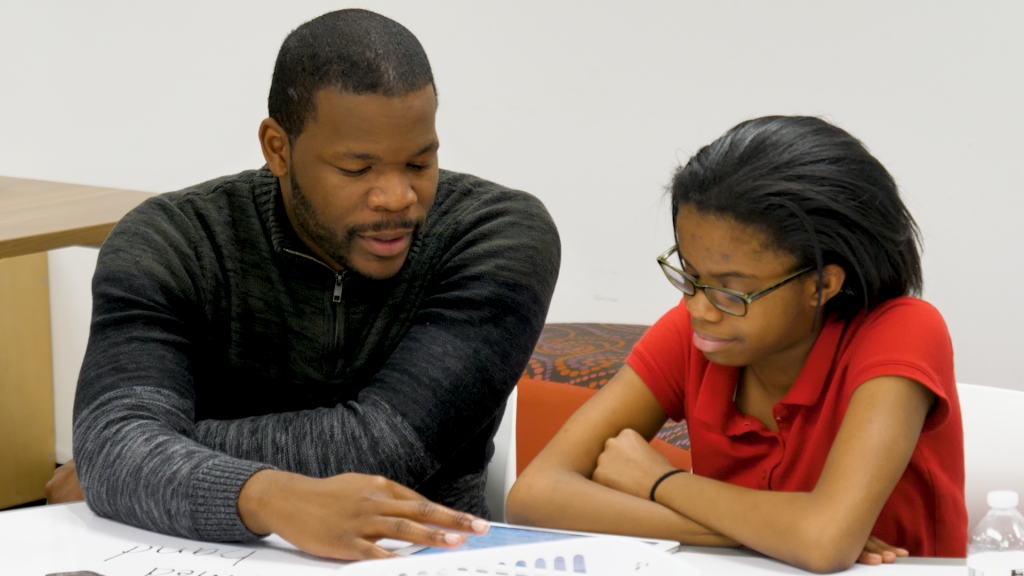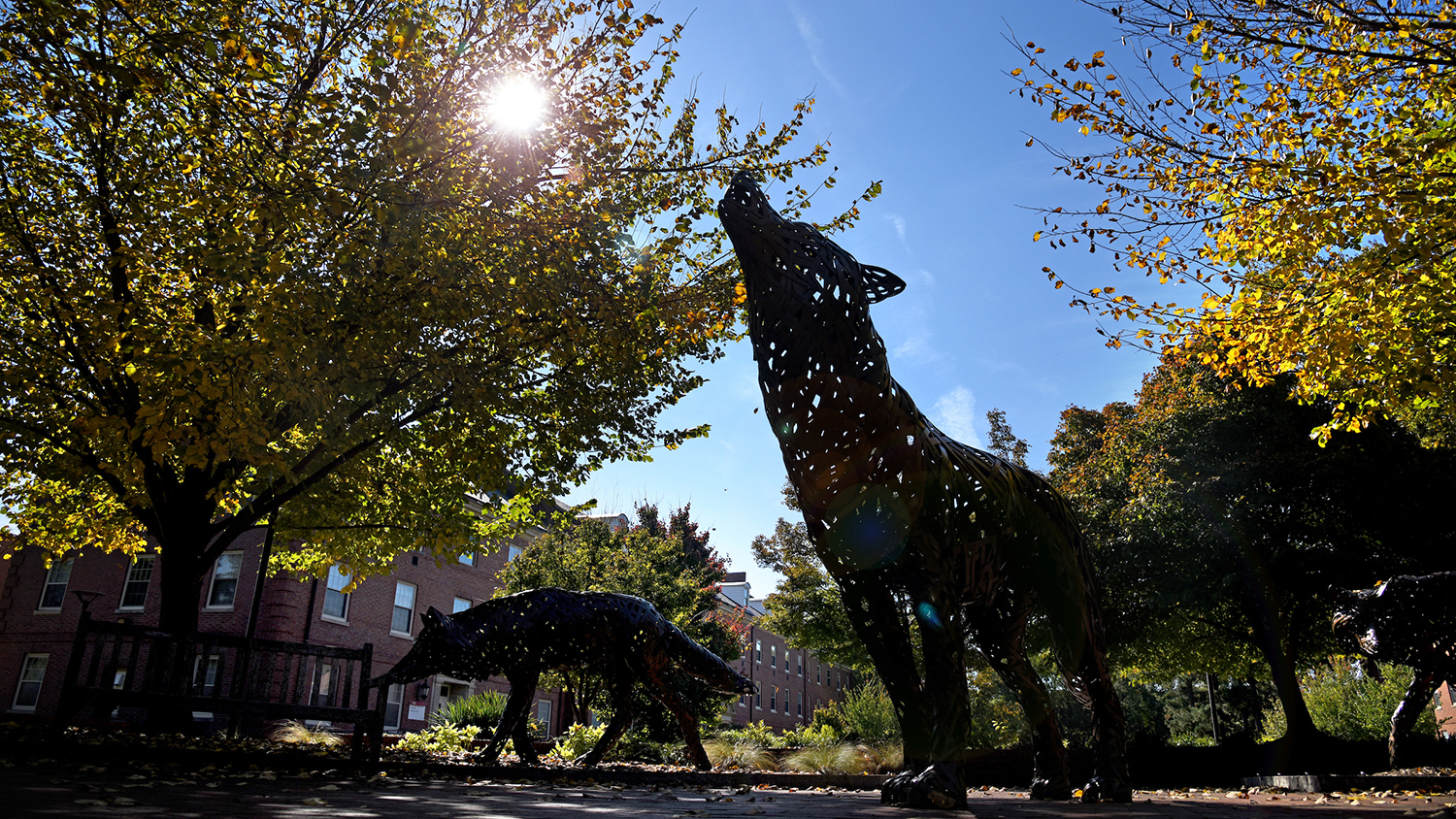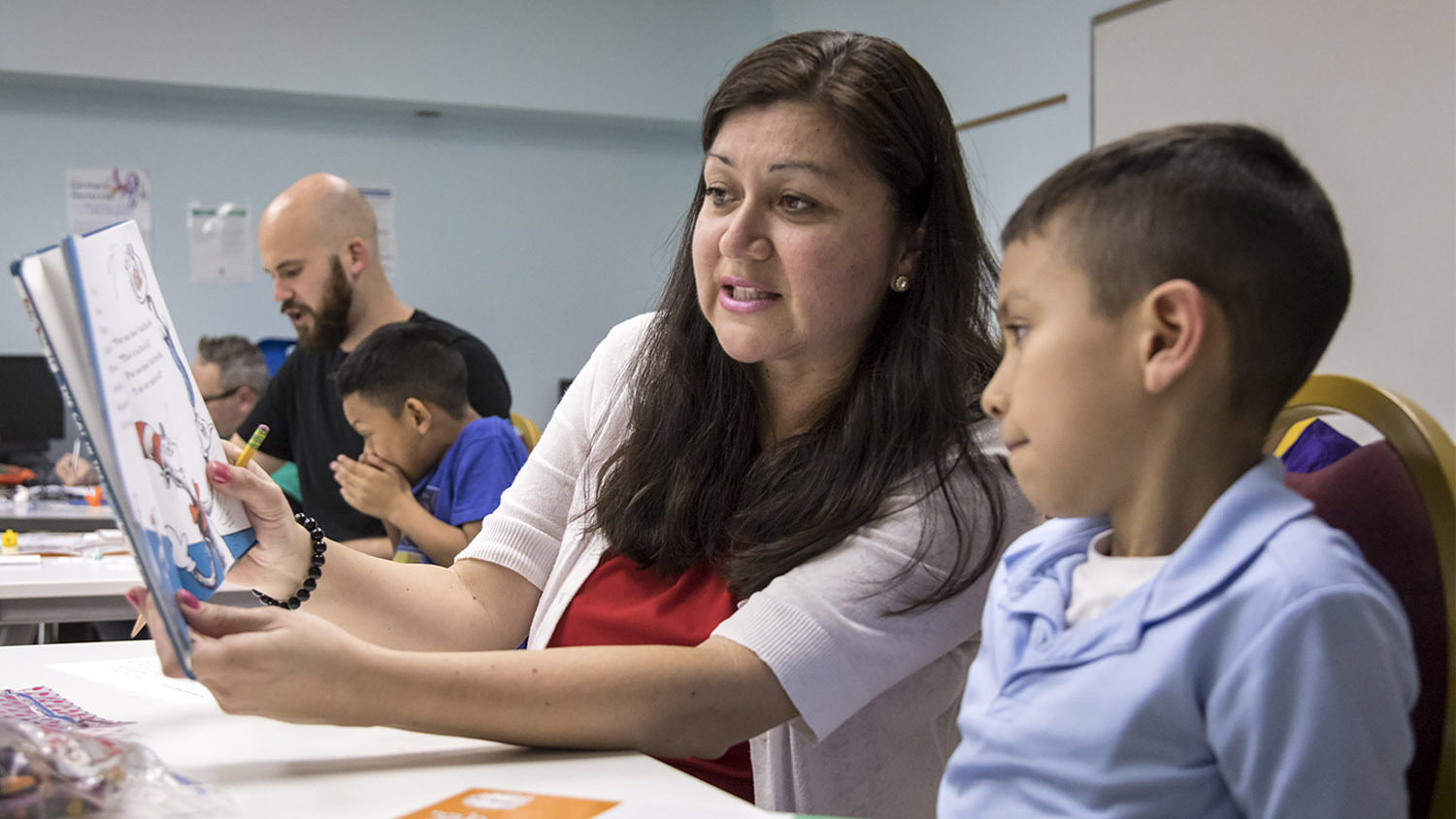Excellence Fund Helps The Literacy Space Provide Reading Support Services for Elementary School Students, Creates Professional Development Opportunities

Editor’s Note: This story was written and reported last spring before NC State and public schools moved to at-home learning to mitigate the spread of COVID-19. We planned to publish the piece to coincide with NC State’s Day of Giving 2020 originally scheduled for March 25, 2020. We are publishing this story now to coincide with the university’s one-time fall Day of Giving: Stronger as a Pack scheduled to be held Sept. 16. Due to the coronavirus and the increase of online graduate programs, The Literacy Space has since moved to a more virtual instruction model where activities are done either at partner schools or remotely.
When Dennis Davis, Ph.D., associate professor of literacy education, arrived at the NC State College of Education in 2016, one of the first things he wanted to do was establish a reading clinic and an early literacy program for children in the local community.
“I’ve always been interested in helping kids who are having difficulties with reading,” said Davis. “In my previous life, I was an upper elementary teacher and I worked mostly with kids for whom reading and school was hard. That was my passion. That’s what I loved to do.”
In the spring of 2017, he ran the first version of the Wolfpack Readers Program, an afterschool tutoring program for elementary-aged students with reading difficulties. The following year, donations to the NC State College of Education Excellence Fund allowed the program to move to an off-campus location, known now as The Literacy Space.
Financial support not only allowed for an off-campus space, but it has helped offset the operational expenses needed to run a high-quality program, provided the materials and technology needed to implement the program and supplied furniture and materials for families to use when they are visiting The Literacy Space, says Davis.
The Literacy Space provides direct services to children in second through sixth grade who need extra support in reading, and serves as a hub for teacher professional development.
Through The Literacy Space, Courtney Samuelson ‘23PHD, who is pursuing a Ph.D. in Teacher Education and Learning Sciences program area of study in literacy and English Language Arts education, gets to build curriculum for the intervention segments, and supervises and coaches graduate students, who serve as tutors in the space.
“It’s been a really good opportunity for me because I’ve gotten more practice developing early literacy curriculum,” Samuelson said. “Since my background is more upper elementary and middle school, this is giving me a really great opportunity to learn more about early literacy and those skills students might need and where they might need assistance.”
Being able to observe graduate student tutors, provide feedback and coach, has helped Samuelson to develop as a teacher leader, which is ultimately what she would like to do.
“It’s part of our university’s mission to support teacher development in our state,” Davis added. “It’s really important for us to have a space where we have the freedom and the flexibility to help teachers learn the kinds of evidence-based instructional methods that we know they need to be really good at to be effective in the classroom.”
NC State College of Education graduate students work as tutors and provide Wolfpack Readers with 20-30 hours of intensive and engaging reading instruction based on the individual needs of the child. Ten to 18 tutors are available at a time with about seven kids attending per session.
The Wolfpack Readers Program offers three sessions a year – fall, spring and summer. Over the past three years, The Literacy Space has worked with approximately 50 children.
“When I started, I didn’t really like reading. I thought it was really boring, but now that they’ve taught me, it’s kind of fun,” said Danna, a third-grade Wolfpack Reader. “I started reading books, understanding more words, understanding more sentences and how to do paragraphs.”
The Literacy Space helps kids really focus on specific skills that they may be having difficulty with at school. In building those skills, they’re better able to progress as they engage with the grade level material they are encountering at school.
“Our kids routinely make giant leaps in their reading skills. We have a really good instructional model where we are able to really tailor our instruction to their very specific needs,” Davis said.
Davis says The Literacy Space also helps kids with their confidence. They’ve noticed that there’s a confidence boost that the students are getting through the program.
“[My daughter] is growing by leaps and bounds. Each time she comes here, she comes up another level,” said Brandon Garrett, parent of a sixth-grade Wolfpack Reader. “She is much more confident with her reading and is more confident even with her speaking because now when she speaks, she speaks from a point where it’s comfortable.”

It was important for Davis to make sure the Wolfpack Readers Program was affordable. It’s mission is to provide support for families who may not otherwise be able to afford highly specialized, intensive intervention for reading. For that reason, a sliding scale is used to determine the cost for each family. Some families pay more while others pay very little, but the cost is competitive compared to what is available in the private market.
Donations to the NC State College of Education Excellence Fund have made it possible for the Wolfpack Readers Program to keep its fees for families as low and affordable as possible so the program can target the families who they really hope to serve.
“I think the program is well worth the funding that it gets and probably needs to get more funding because it helps all the children there,” said Garrett. “I think all of the parents can truly say it’s one of the things that has been a bright spot, especially her academic career as it is right now.”
As director of The Literacy Space, Davis’ goal is to be able to provide more direct financial assistance to families who need help and to be able to expand the services offered by The Literacy Space, which he hopes would be possible with more funding.
“With additional financial support, we would be able to expand the number of tutors we have available and that would allow us to reach more kids and also have training for more teachers who want the expertise,” he said. “It would also allow us to expand our professional development offerings beyond the people who are immediately working in our program.”
Additional funding would allow for the program to provide scholarships for kids who need help reading, ultimately reducing fees for parents, especially right now when the program is working on its remote instruction model. Funding would also help ensure the materials and technology are up-to-date and support stipends for the College of Education students who work with The Literacy Space.
“It’s been a career-long goal of mine to really think about what would it take to get every kid in every classroom the level of skill they need to read proficiently and that has led me toward thinking about what will it take to get every teacher equipped with the tools they need to do that,” Davis said. “That’s really what we’re trying to do here is focus on a small set of kids and help them and also work with as many teachers as we possibly can to where our programs and the expertise they learn here can spread as far as it can across the state.”
- Categories:


